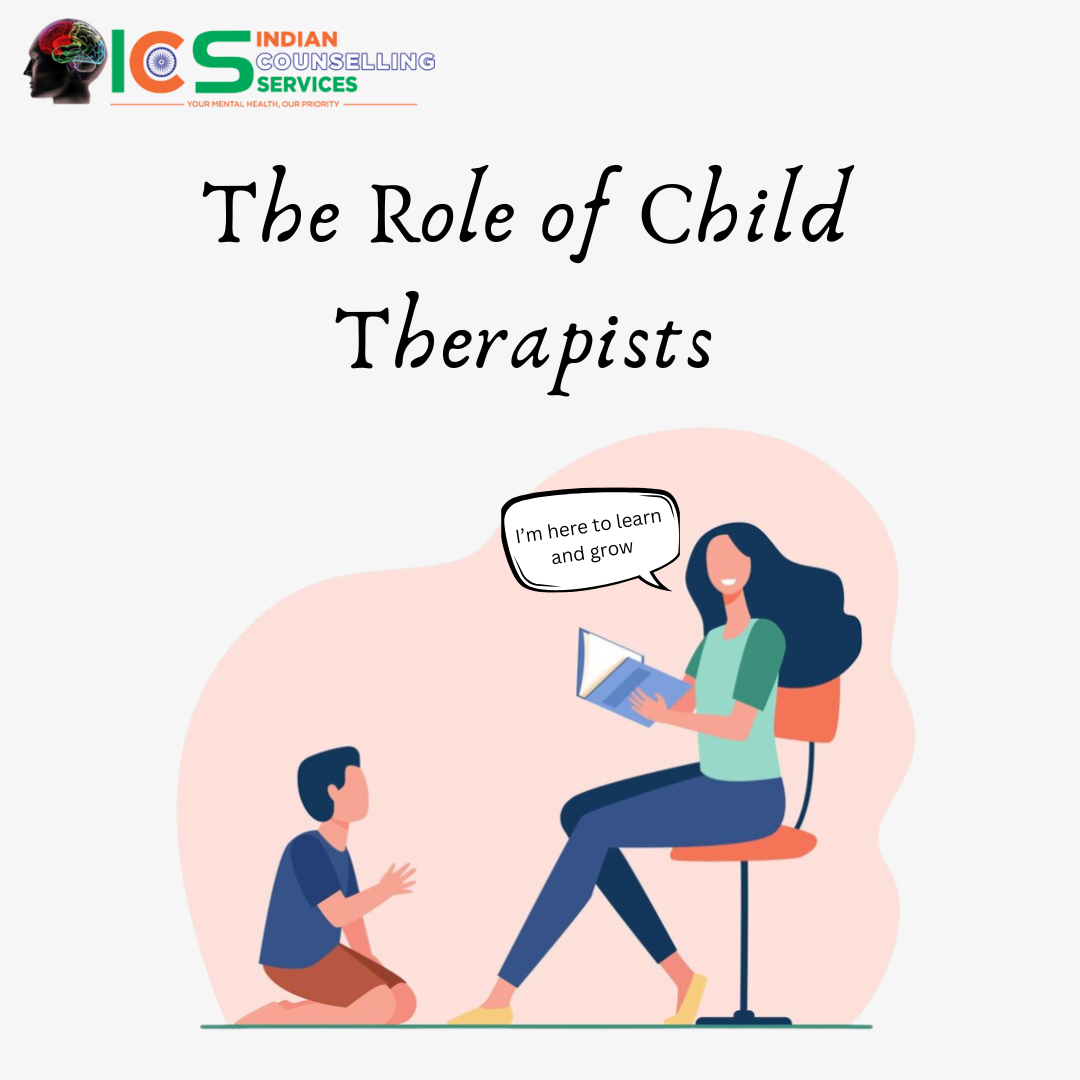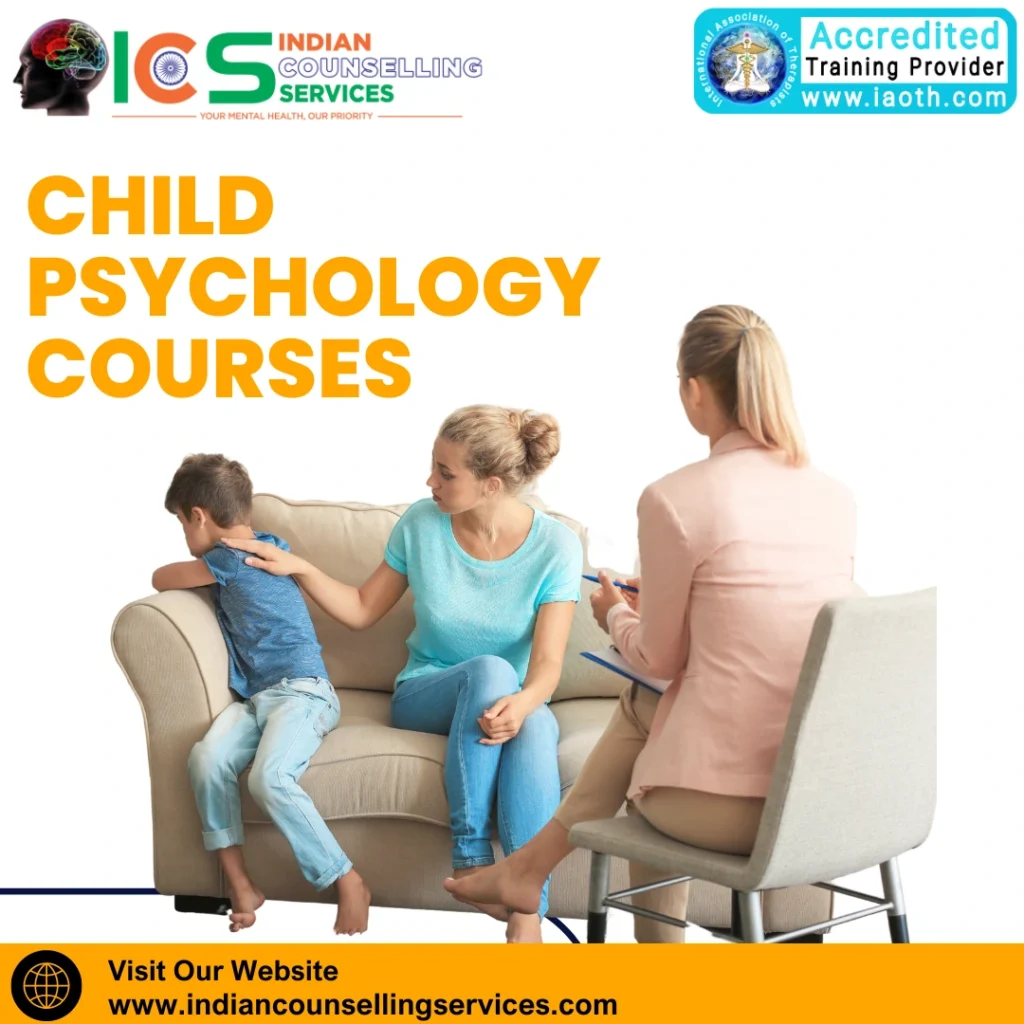
Why Choose a Child Psychology Program? Understanding the Role of Child Therapists
Childhood is a foundational period in human development, shaping how individuals will think, feel, and behave throughout their lives. During this critical stage, children encounter various challenges that impact their emotional and psychological well-being. From struggles in school to dealing with family dynamics, children often need help navigating these complex experiences. The Role of Child Therapists, This is where child therapists step in, and pursue a Child Psychology Program
becomes essential for those who want to make a lasting impact on young lives.
This blog delves into the significance of child psychology, what child therapists do, why choosing a child psychology program is so important, and the unique rewards of this specialized field.
The Significance of Child Psychology: The Role of Child Therapists
Child psychology is the study of the mental, emotional, and behavioral development of children from infancy to adolescence. It focuses on understanding how children grow, think, and form relationships. The field explores critical areas such as cognitive development, emotional regulation, social skills, and moral understanding.
Children’s development can be influenced by a wide range of factors, including family environment, social relationships, genetic makeup, and cultural background. Child psychologists study how these factors interact and how children respond to stress, change, or trauma. More importantly, child therapists use this knowledge to help children manage emotional challenges, behavior issues, or developmental delays that may impact their future well-being.
A child therapist specializes in working with children to address and treat emotional, behavioral, and mental health issues. The role is both complex and deeply rewarding, as it involves understanding a child’s developmental stage and unique needs.
Key Responsibilities of a Child Therapist:
- Evaluation and Diagnosis: Child therapists assess a child’s emotional and behavioral state using interviews, observations, and standardized psychological tests. This helps in diagnosing mental health conditions, such as anxiety, depression, learning disabilities, or attention-deficit/hyperactivity disorder (ADHD).
- Creating Individual Treatment Plans: After diagnosis, therapists design treatment plans that suit the child’s developmental level and specific challenges. This may include play therapy, cognitive-behavioral therapy (CBT), family counseling, or behavior modification techniques.
- Therapeutic Sessions: Therapy for children often involves creative methods like play, drawing, or storytelling. These activities help children express their feelings and thoughts when words are insufficient. Child therapists use these tools to help children process emotions and develop coping strategies.
- Supporting Parents: Parents are key to a child’s emotional environment, so child therapists often involve them in the therapy process. Providing parents with the tools to understand and support their child’s needs is critical for long-term success.
- Collaboration with Educators and Other Professionals: Child therapists frequently collaborate with teachers, pediatricians, and other professionals to create a comprehensive support system for the child. This is especially important when emotional or behavioral issues affect school performance or social development.

If you’re drawn to helping children through their most formative years, a Child Psychology Program offers the expertise needed to guide young individuals and their families toward healthier emotional and mental outcomes. But why should you choose this program? The Role of Child Therapists, Here are several compelling reasons:
1. The Importance of Early Intervention
Child therapists are trained to identify emotional or psychological issues early on. Addressing mental health issues in childhood can prevent long-term challenges in adulthood. Child psychology programs focus on early intervention techniques, which are crucial for fostering healthy development. If you are passionate about making a difference early in a person’s life, this program is an ideal choice.
2. A Deep Understanding of Development
Child psychology programs offer specialized knowledge about how children grow and develop. You will learn about various developmental stages, from infancy through adolescence, and understand how these stages affect emotional, cognitive, and social growth. The Role of Child Therapists, This understanding is essential when working with children to ensure appropriate interventions for each stage of their development.
3. Specialized Therapeutic Methods
Children express emotions and process thoughts differently than adults. Child psychology programs teach therapeutic techniques tailored to children, such as play therapy, art therapy, and behavior-focused interventions. These methods help children express feelings and work through challenges in ways that are developmentally appropriate.
4. Enhancing Family Dynamics
Family is a major influence on a child’s emotional development, and child therapists often work with entire families to improve relationships and communication. The Role of Child Therapists, A child psychology program teaches you how to engage parents and caregivers in the therapeutic process, allowing for more effective and holistic support for the child.
5. A Growing Demand for Child Therapists
There is a rising awareness of the importance of mental health, particularly for children, which has increased the demand for qualified child therapists. Graduates of child psychology programs are finding more opportunities in schools, private practices, healthcare settings, and community organizations. The demand makes this a promising career choice in terms of job stability and societal impact.
6. Opportunities for Research and Advocacy
If you’re interested in the academic or research side of psychology, child psychology programs also provide opportunities to contribute to the growing body of knowledge on childhood mental health. Whether you want to work in policy development, conduct groundbreaking research, or design new therapies, child psychology programs give you the tools to pursue these goals.
7. Personal Fulfillment
Few careers offer the level of personal fulfillment that child psychology does. Helping a child navigate emotional struggles, improve their self-esteem, and build resilience can have a lifelong impact. For many professionals, knowing they’ve helped shape a child’s future for the better is the most rewarding part of the job.
Child psychology programs combine theoretical coursework with hands-on practice to prepare you for real-world challenges. The Role of Child Therapists, Some of the areas covered in these programs include:
- Developmental Psychology: Courses focus on the physical, emotional, cognitive, and social development of children. You’ll study how children progress through various developmental stages and the factors that influence their growth.
- Child Psychopathology: Understanding the nature of psychological disorders in children, including learning disabilities, anxiety, depression, and behavioral disorders.
- Therapeutic Techniques: You’ll learn methods such as play therapy, cognitive-behavioral therapy (CBT), and family counseling, which are tailored to meet the needs of children.
- Family Systems: Understanding how family dynamics affect a child’s mental and emotional development is crucial. Courses often cover how to involve parents and caregivers in the therapeutic process.
Practical Experience: Most programs include internships or supervised clinical practice, where students work directly with children under the guidance of experienced therapists. This hands-on experience is vital for gaining the skills needed for successful therapy
Choosing to pursue a child psychology program opens the door to a career where you can make a profound difference in the lives of children and their families. Child therapists play an essential role in addressing emotional and psychological challenges that, if left unchecked, could carry into adulthood. The Role of Child Therapists, This is a career path that not only offers intellectual and professional fulfillment but also the emotional satisfaction of knowing your work directly impacts the well-being of the next generation.
Whether you’re interested in therapy, research, or education, a child psychology program equips you with the tools to understand and support children through their most formative years. If you’re passionate about mental health, emotional resilience, and helping children build a strong foundation for their future, a career in child psychology might be your ideal path.

1 Comment
Adulting: A Guide to Growing Up Without Losing Yourself - indiancounsellingservices.in
October 14, 2024[…] Adulting—a term that has gained traction over the past few years—describes the act of managing adult responsibilities, such as paying bills, maintaining a career, and taking care of day-to-day obligations. While these responsibilities are unavoidable as you transition into adulthood, there is often an underlying fear that, in the process of “growing up,” you might lose a part of yourself. […]